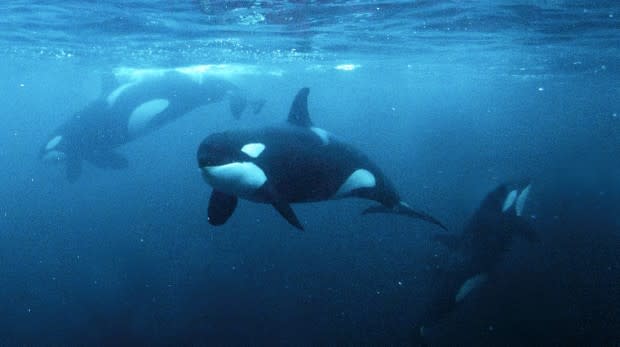Scientists Believe a 'Traumatized' Orca Is Teaching Other Whales to Attack Ships Off Iberian Coast

An uptick in killer whale attacks off Europe's Iberian coast are suspected to be the result of learned behavior. And experts believe that the attacks—which began to spike in 2020 and have led to several ships being sunk—may have started with one "traumatized" orca.
Dozens of attacks have been reported in recent years, mostly concentrated in the Strait of Gibraltar; though incidents have occurred as far as off the coasts of Portugal and France. Many seem to follow the same pattern. One or more whales will attack the ship's rudder while a larger whale will ram the side of the boat. Once the boat stops or becomes incapacitated, the orcas seem to grow bored and move on.
"The orcas are doing this on purpose, of course," López Fernandez co-author of a 2022 Marine Mammal Science study about the whales' "disruptive" behavior, told Live Science. "We don't know the origin or the motivation, but defensive behavior based on trauma, as the origin of all this, gains more strength for us every day."
As the attacks have continued to escalate, researchers think it's possible they stemmed from one female orca they've named "White Gladis," who may have suffered a "critical moment of agony" such as an accidental collision with a boat or illegal fishing entrapment. That incident, they believe, "flipped a behavioral switch."
"That traumatized orca is the one that started this behavior of physical contact with the boat," Fernandez added.
Out of about 500 reported interactions with killer whales since 2020, there have been only three instances of the animals sinking ships. However, plenty of other sailors have seen extensive damage to their ships costing thousands of dollars in repairs.
G reg Blackburn, an experienced sailor from the United Kingdom, had to replace a rudder on his ship after he was attacked by several orca while navigating the Strait of Gibraltar on May 2. He estimates the damage to be approximately $8,000 to $9,000.
Despite the circumstances, he doesn't think the attack was malicious.
Related: Watch the Terrifying Moment a Tiger Shark Attacks a Kayak Fisherman
" You can see in one of the videos the matriarch coming up and attacking the rudder with calf at side of her, then she drops back and then the little calf gets in to have a go," Blackburn later told 9 News. "It was definitely some form of education, teaching going on."
Deborah Giles, a University of Washington orca researcher likewise told Live Science that the attacks could be the result of a "fad" among the animals. "They are incredibly curious and playful animals and so this might be more of a play thing as opposed to an aggressive thing," Giles said.
There have never been any documented reports of wild orcas attacking or killing humans. But if these incidents continue or intensify, it could pose a real threat to the safety of both mariners and the whales, which are listed as critically endangered.
